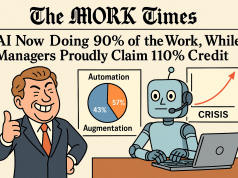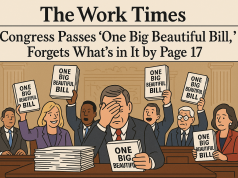Professional development is a cornerstone of career success, helping individuals acquire new skills, navigate career challenges, and unlock their full potential. But despite the widespread use of traditional professional development programs—like standardized training courses, mentorship programs, and corporate workshops—many professionals find that these initiatives fall short in addressing their unique needs. They can feel generic, one-dimensional, and often disconnected from the specific challenges and aspirations of the individual.
That’s where scouts come in. Unlike conventional professional development models that focus on standardized solutions, scouts offer a more personalized, hands-on approach to helping professionals grow. They address the gaps left by traditional methods, providing tailored guidance that aligns with the complexities of today’s evolving workplace.
In this blog, we’ll explore the limitations of conventional professional development and how scouts are uniquely positioned to fill those gaps, offering a more holistic and impactful approach to career growth.
1. Conventional Development Is Often One-Size-Fits-All
One of the most common criticisms of conventional professional development is its “one-size-fits-all” nature. Corporate workshops, training programs, and even mentorship initiatives often provide standardized content designed to apply to a broad range of employees. While these programs can be beneficial for general skill-building, they rarely take into account the individual’s unique circumstances, career goals, or personal strengths.
The Scout Difference: Personalized and tailored development that fits your unique needs.
Scouts take a different approach by offering highly personalized guidance. Instead of relying on generic strategies, scouts work one-on-one with professionals to identify their specific challenges, strengths, and aspirations. They provide development plans that are custom-tailored to the individual’s career path, ensuring that each person gets the right support at the right time. Whether it’s leadership development, communication skills, or career transitions, scouts focus on providing guidance that fits each individual’s unique journey.
Example: In a conventional leadership development program, you might receive generic advice on how to manage a team. But with a scout, you’d work on developing leadership skills that align with your specific management style, team dynamics, and long-term goals, resulting in more meaningful growth.
2. Limited Real-Time Support
Traditional professional development programs tend to be structured around scheduled sessions, whether they’re workshops, conferences, or quarterly mentorship meetings. While these sessions can provide valuable insights, they often leave employees without the real-time support they need to address immediate challenges. This delayed feedback can lead to missed opportunities for improvement or learning in the moment.
The Scout Difference: Real-time, hands-on guidance that helps you navigate challenges as they arise.
Scouts offer real-time support, helping professionals tackle issues as they happen. This hands-on approach allows for immediate feedback, whether you’re preparing for an important presentation, handling a difficult workplace conflict, or navigating a sudden career transition. Instead of waiting for the next formal training session or meeting, scouts provide continuous, actionable guidance, ensuring that you’re able to address challenges as they come up.
Example: If you’re struggling with a client issue, a traditional development program might leave you waiting for the next coaching session. A scout, on the other hand, would be available to troubleshoot the situation in real time, offering feedback and strategies to resolve the issue effectively.
3. Overemphasis on Technical Skills
Many professional development programs tend to focus heavily on technical skills—such as mastering new software, industry-specific tools, or hard skills like data analysis. While these skills are essential, they are often taught in isolation from the soft skills that are just as critical for success, such as communication, leadership, emotional intelligence, and conflict resolution. This imbalance can leave professionals with technical know-how but without the interpersonal skills needed to thrive in today’s collaborative work environments.
The Scout Difference: A balanced approach that addresses both hard and soft skills.
Scouts take a holistic approach to professional development, recognizing that success requires a balance of both hard and soft skills. While they help professionals master the technical aspects of their roles, they also focus on developing critical interpersonal skills. Whether it’s learning how to lead a team with empathy, communicate effectively with stakeholders, or manage stress and conflict, scouts ensure that professionals are well-rounded and equipped to succeed in every aspect of their careers.
Example: If you’re an IT professional looking to move into management, a scout would not only help you enhance your technical expertise but also guide you in developing the leadership and communication skills required to effectively manage a team.
4. Lack of Long-Term, Strategic Focus
Conventional professional development programs often emphasize short-term goals, such as gaining a new certification, completing a training module, or achieving immediate performance targets. While these programs can deliver quick wins, they sometimes fail to address the individual’s long-term career aspirations and development needs. Professionals may leave the program feeling better prepared for their current role but unsure of how to continue growing or how the new skills align with their future goals.
The Scout Difference: A long-term focus that aligns development with your career goals.
Scouts help professionals think strategically about their long-term career growth. Instead of focusing solely on immediate goals, scouts guide individuals in creating a roadmap that supports both short-term and long-term aspirations. Whether you’re aiming for a leadership role, planning a career pivot, or looking to start your own business, a scout will work with you to ensure that your professional development is aligned with your future vision. This strategic focus helps you build a career that’s not only successful but also fulfilling.
Example: If you’re aiming for a C-suite position in the next five years, a scout would help you create a comprehensive development plan that addresses both the skills you need today and the leadership qualities you’ll need to succeed at the executive level.
5. Limited Adaptability to Change
The modern workplace is constantly evolving. New technologies, industry shifts, and changing employee expectations mean that professionals need to be adaptable and agile in their careers. However, traditional professional development programs are often slow to change, relying on standardized curriculums or outdated methods that don’t reflect the latest industry trends or workplace realities.
The Scout Difference: Adaptability and flexibility in a constantly evolving workplace.
Scouts provide adaptable, forward-thinking guidance that helps professionals stay ahead of industry changes. They stay attuned to emerging trends, new technologies, and evolving workplace dynamics, ensuring that the guidance they provide is always relevant. Scouts help professionals develop the skills and mindset needed to embrace change and adapt quickly, positioning them for success in a rapidly shifting work environment.
Example: If you’re working in an industry disrupted by automation or AI, a scout would help you stay ahead by identifying new skills to learn, adapting your career strategy, and helping you transition into emerging roles or sectors that align with your expertise.
6. Neglect of Emotional and Mental Well-Being
In today’s high-pressure work environments, stress, burnout, and mental health challenges are increasingly common. However, traditional professional development programs often neglect the emotional and mental well-being of employees, focusing primarily on performance improvement or skill development. This gap leaves many professionals struggling to manage their stress or find balance between their personal and professional lives.
The Scout Difference: Holistic support that prioritizes emotional and mental well-being.
Scouts take a holistic approach to development, recognizing that emotional well-being is just as important as professional success. They provide guidance on how to manage stress, maintain a healthy work-life balance, and develop emotional resilience in the face of challenges. By addressing both the professional and personal aspects of growth, scouts help individuals sustain long-term success without sacrificing their well-being.
Example: If you’re dealing with burnout, a scout would work with you to create strategies for reducing stress, setting boundaries, and finding a sustainable pace that supports both your career and your health.
Conclusion
Conventional professional development programs, while valuable in many ways, often leave gaps that can prevent individuals from reaching their full potential. From their one-size-fits-all approach to their focus on short-term goals and technical skills, these programs can overlook the complexities of individual career journeys and the evolving demands of the modern workplace.
Scouts address these gaps by offering personalized, real-time, and holistic support that empowers professionals to grow in every aspect of their careers. Whether it’s providing tailored development plans, balancing hard and soft skills, or ensuring emotional well-being, scouts offer a more comprehensive and impactful approach to professional growth.
If you’re ready to break free from conventional professional development and take your career to the next level, working with a scout could be the transformative step you need. By focusing on your unique strengths and challenges, scouts ensure that you not only develop the skills to succeed but also thrive in an ever-changing work environment.




























